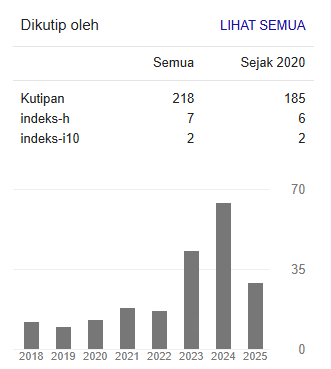POSISI TASAWUF TEORETIS DALAM TINJAUAN LOGIKA TAFSIR AL-QUR’AN
DOI:
https://doi.org/10.20871/tjsq.v1i2.27Keywords:
Theoretical Sufism, the logic of Qur’ānic exegesis, shuhūd ‘irfānī, ‘aqlī-burhānīAbstract
This paper addresses the issue of how the position of theoretical Sufism in the interpretation of the Qur’an. Departing from some reasons for rejecting the validity of Sufistic method of Qur’anic interpretation (isharī method), the author sees the need to explain the nature of theoretical Sufism and its position based on the logic of Qur’anic exegesis. Some important points which the author tries to show in this paper are five principles, as follows: First, the theoretical Sufism could be positioned as a source of interpretation of the Qur’an. Second, shuhūd ‘irfānī which is the main foundation of theoretical Sufism could be positioned as a source of interpretation of the Qur’an, in the context of the disclosure of meaning, not in the explanation of it. Third, theoretical Sufism might be used as a source or indicator to determine a position in the interpretation of the Qur’an. Fourth, every hypothetical (zhannī) proposition in the Qur’ānic interpretation must not conflict with the certaint (qaṭ’ī) rational proposition in the theoretical Sufism. Fifth, Sufistic interpretation of the Qur’an is a particular form of a set of method of Qur’anic interpretation, which can be combined with the other methods, to achieve an eclectic and holistic interpretation of the Qur’an. The author also gives an example as the application of those five principles in the interpretation of the meaning of khalīfah fī al-ardh in al-Baqarah [2]: 30.
Downloads
Published
How to Cite
Issue
Section
License
Copyright (c) 2016 Sekolah Tinggi Filsafat Islam (STFI) Sadra

This work is licensed under a Creative Commons Attribution-NonCommercial-ShareAlike 4.0 International License.






















